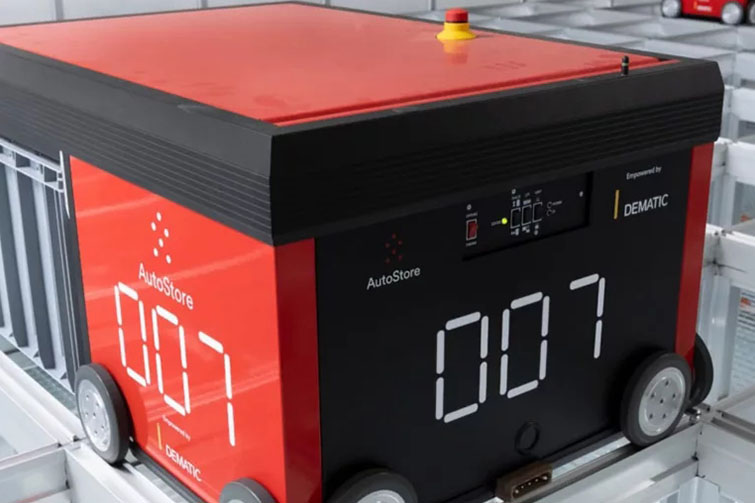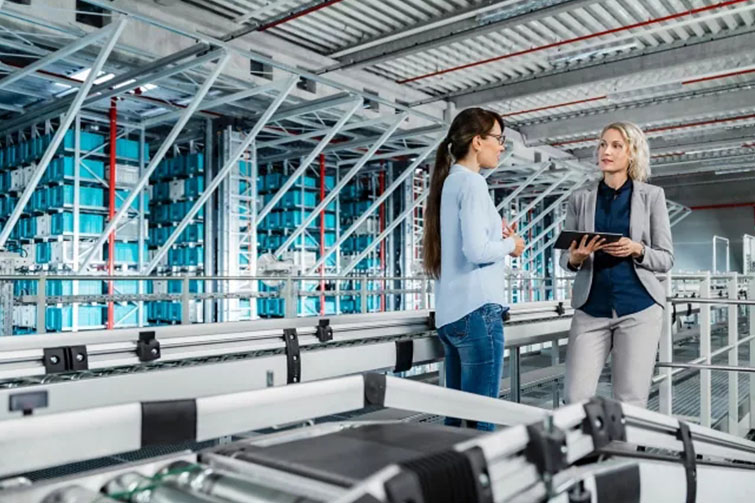

Who Needs Micro-Fulfillment?
In today’s fast-paced digital age, consumers expect speed, convenience, and flexibility when shopping online. To meet these growing demands, businesses are increasingly turning to Micro-Fulfillment. But which companies stand to benefit the most from this innovative logistics strategy? Let's explore the types of businesses that should consider adopting micro-fulfillment to stay competitive and enhance customer satisfaction.
1. E-commerce Retailers
E-commerce has exploded in recent years, with consumers expecting rapid delivery times and seamless online shopping experiences. For e-commerce companies, micro-fulfillment offers several advantages:
- Faster Delivery: By locating inventory closer to urban customers, e-commerce retailers can provide same-day or next-day delivery, enhancing customer satisfaction and reducing cart abandonment rates.
- Cost Efficiency: Shorter delivery distances lower last-mile logistics costs, which is one of the most expensive parts of the supply chain.
- Scalability: Micro-fulfillment centers (MFCs) allow e-commerce businesses to scale their operations based on demand, ensuring they can handle peak shopping seasons without delay.
Examples:
- Amazon, Shopify merchants, and Zalando are leveraging micro-fulfillment to offer rapid delivery and remain competitive in the crowded e-commerce market.
2. Grocery Stores and Supermarkets
The demand for online grocery shopping has surged, particularly after the global pandemic. Shoppers now expect fresh groceries delivered to their doorsteps within hours. Micro-fulfillment is the perfect solution for grocery stores to meet this demand:
- Rapid Order Fulfillment: MFCs enable supermarkets to fulfill online orders quickly, ensuring perishable items like fresh produce and dairy products maintain their quality.
- In-Store Pickup Efficiency: By integrating micro-fulfillment within or near physical stores, grocery retailers can offer efficient curbside pickups and click-and-collect services.
- Inventory Accuracy: Advanced inventory management systems within MFCs ensure accurate stock levels, minimizing the risk of out-of-stock situations for popular grocery items.
Examples:
- Walmart, Kroger, and Albertsons have successfully implemented micro-fulfillment solutions to enhance their online grocery services.
3. Pharmacies and Healthcare Providers
The healthcare industry is increasingly moving online, with consumers ordering prescription medications and healthcare products through digital platforms. Micro-fulfillment provides the following benefits for pharmacies:
- Fast and Accurate Order Processing: Automated systems in MFCs ensure accurate and timely fulfillment of prescription orders, reducing wait times for patients.
- Local Delivery and Pickup Options: Pharmacies can offer convenient same-day delivery or in-store pickup, catering to patients who need medications quickly.
- Regulatory Compliance: MFCs enable secure and controlled environments to store sensitive medical supplies, ensuring compliance with health regulations.
Examples:
- CVS, Walgreens, and Amazon Pharmacy are using micro-fulfillment to streamline prescription processing and enhance customer convenience.
4. Fashion and Apparel Retailers
The fashion industry is highly dynamic, with trends changing rapidly. To stay relevant, apparel retailers need to meet consumers' expectations for fast fashion and quick deliveries:
- Rapid Restocking: Micro-fulfillment allows for quicker restocking of popular items, preventing lost sales due to stockouts.
- Efficient Returns Management: By positioning MFCs close to customers, retailers can streamline returns processing, improving the overall shopping experience.
- Personalized Customer Experience: Fast delivery and flexible return options enhance brand loyalty and customer satisfaction.
Examples:
- Zara, H&M, and Nike are leveraging micro-fulfillment to offer fast delivery and maintain a competitive edge in the fashion industry.
5. Electronics and Consumer Goods
Electronics and consumer goods are high-demand products with a need for rapid delivery and accurate inventory management. Micro-fulfillment helps in:
- Speedy Delivery: Meeting customer expectations for same-day or next-day delivery, especially for high-value electronics.
- Reduced Shipping Costs: Localized fulfillment minimizes shipping expenses for bulky items like home appliances.
- Secure Storage: MFCs provide a secure environment for valuable electronics, reducing the risk of theft and damage.
Examples:
- Best Buy, Apple, and Samsung use micro-fulfillment strategies to meet high customer expectations for fast, reliable delivery.
6. Home Improvement and Furniture Stores
Home improvement and furniture purchases often involve large, bulky items that require efficient logistics:
- Quick Delivery and Assembly: Customers expect rapid delivery and, in some cases, assembly services. MFCs help meet these demands with local inventory and delivery teams.
- Cost-Effective Shipping: Reduced shipping distances lower transportation costs for heavy or oversized products.
- Enhanced Customer Experience: Faster deliveries enhance customer satisfaction, particularly for large, high-investment purchases.
Examples:
- IKEA, Home Depot, and Wayfair have adopted micro-fulfillment to streamline logistics and improve delivery times.
7. Beauty and Personal Care Brands
Beauty products, including skincare, cosmetics, and personal care items, are often purchased online, with customers expecting fast delivery:
- Same-Day Delivery: Beauty brands can offer same-day or next-day delivery for last-minute purchases or gift orders.
- Localized Promotions: MFCs enable targeted marketing campaigns and localized inventory management, catering to regional demand.
- Reduced Packaging and Shipping Costs: Proximity to customers allows for more eco-friendly packaging and reduced shipping expenses.
Examples:
- Sephora, Ulta Beauty, and Glossier are using micro-fulfillment to enhance their direct-to-consumer (DTC) e-commerce experiences.
Conclusion
Micro-fulfillment is transforming the way businesses operate by bringing inventory closer to consumers, reducing delivery times, and optimizing logistics costs. It’s not just a trend—it's a strategic necessity for companies looking to meet modern consumer demands.
From e-commerce giants and grocery stores to fashion retailers and pharmacies, businesses across various industries can benefit from micro-fulfillment. By leveraging this innovative approach, companies can enhance customer satisfaction, increase operational efficiency, and maintain a competitive edge in today’s rapidly evolving market.
As digital commerce continues to grow, micro-fulfillment will play an even more critical role in shaping the future of retail logistics. Companies that embrace this strategy will be better positioned to meet consumer expectations and thrive in an increasingly competitive landscape.





